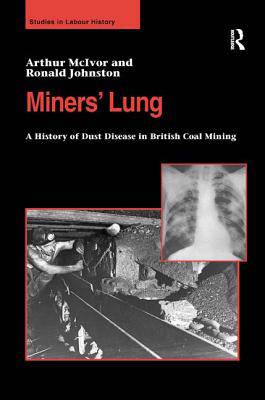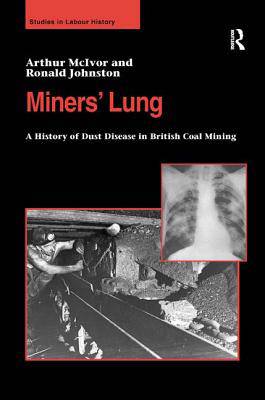
- Afhalen na 1 uur in een winkel met voorraad
- Gratis thuislevering in België vanaf € 30
- Ruim aanbod met 7 miljoen producten
- Afhalen na 1 uur in een winkel met voorraad
- Gratis thuislevering in België vanaf € 30
- Ruim aanbod met 7 miljoen producten
Zoeken
€ 290,45
+ 580 punten
Uitvoering
Omschrijving
Arthur McIvor and Ronald Johnston explore the experience of coal miners' lung diseases and the attempts at voluntary and legal control of dusty conditions in British mining from the late nineteenth century to the present. In this way, the book addresses the important issues of occupational health and safety within the mining industry; issues that have been severely neglected in studies of health and safety in general. The authors examine the prevalent diseases, notably pneumoconiosis, emphysema and bronchitis, and evaluate the roles of key players such as the doctors, management and employers, the state and the trade unions. Throughout the book, the integration of oral testimony helps to elucidate the attitudes of workers and victims of disease, their 'machismo' work culture and socialisation to very high levels of risk on the job, as well as how and why ideas and health mentalities changed over time. This research, taken together with extensive archive material, provides a unique perspective on the nature of work, industrial relations, the meaning of masculinity in the workplace and the wider social impact of industrial disease, disability and death. The effects of contracting dust disease are shown to result invariably in seriously prescribed lifestyles and encroaching isolation. The book will appeal to those working on the history of medicine, industrial relations, social history and business history as well as labour history.
Specificaties
Betrokkenen
- Auteur(s):
- Uitgeverij:
Inhoud
- Aantal bladzijden:
- 374
- Taal:
- Engels
- Reeks:
Eigenschappen
- Productcode (EAN):
- 9780754636731
- Verschijningsdatum:
- 28/01/2007
- Uitvoering:
- Hardcover
- Formaat:
- Genaaid
- Afmetingen:
- 156 mm x 234 mm
- Gewicht:
- 703 g

Alleen bij Standaard Boekhandel
+ 580 punten op je klantenkaart van Standaard Boekhandel
Beoordelingen
We publiceren alleen reviews die voldoen aan de voorwaarden voor reviews. Bekijk onze voorwaarden voor reviews.











